How do I homeschool my kid with Down syndrome?
Homeschooling can be an amazing option for children with Down syndrome. It allows for a tailored education that meets their unique needs while offering a supportive and flexible environment. Traditional classrooms may not always provide the individualized learning pace or methods that some children need and that’s where homeschooling truly shines. Whether it’s customizing lessons to match their strengths or creating a comforting routine that fosters confidence, homeschooling empowers children with Down syndrome to thrive academically, socially, and emotionally.
If you're considering this path, here’s a guide to help you get started.
Tips for homeschooling a kid with Down syndrome
Every child learns differently, and children with Down syndrome often benefit from specific approaches designed to support their development. Below are ways to create an effective homeschooling environment:
- Build a structured yet flexible day. Routine provides a comforting rhythm. Set clear schedules with designated times for learning, breaks, and play. Flexibility is key too! If your child is having an off day, it’s okay to adjust and focus on connection over routine.
- Focus on visual and hands-on learning. Children with Down syndrome often respond best to visual aids and tangible activities. Use colorful charts, flashcards, and physical objects for learning. Incorporating hands-on activities like art, puzzles, or building blocks can make lessons more engaging and memorable.
- Use multi-sensory resources. Engage multiple senses, like touch, sight, and hearing, to reinforce concepts. Singing phonics songs, using textured tracing boards for writing, or incorporating movement during lessons can make learning fun and effective.
- Break lessons into smaller chunks. Shorter, focused sessions work well to avoid overwhelming your child. For example, try 15-20 minutes of learning followed by a small break for play or physical movement.
- Develop life skills alongside academics. Children with Down syndrome often thrive when functional skills are part of their education. Teach practical life skills like cooking, managing routines, or using money during math lessons. These are as important as academic subjects.
- Celebrate progress. Even small achievements are worth celebrating. Focus on what your child accomplishes rather than comparing their progress to peers. Positive reinforcement nurtures confidence and encourages a love of learning.
What to look for in a homeschooling program
Not all homeschooling programs are created equal. To give your child the best experience, here are key factors to consider:
- Does it allow customization? Look for programs that can be tailored to fit your child’s needs. The ability to adjust difficulty levels, switch subjects, or revisit concepts ensures your child progresses at their own pace. Time4Learning allows your child to progress at their own speed and revisit lessons, advancing in subjects they excel at while focusing more on challenging areas.
- Is it multi-sensory? Programs that incorporate visual, auditory, and kinesthetic learning methods are highly beneficial. Interactive or hands-on activities are ideal for keeping your child focused and engaged. Time4Learning keeps students engaged and simplifies learning with vibrant visuals and interactive activities.
- Does it offer clear guidelines? Look for curriculums that provide clear instructions for parents. Many programs are designed to be parent-guided, which can be a huge plus for homeschooling beginners.
- Does it include life skills? Programs that weave in practical life skills or have real-world applications are especially useful. These lessons help prepare your child for everyday life beyond the classroom.
- Does it foster community? Programs that connect you with other homeschooling families can reduce isolation and open up opportunities for peer interaction. Many homeschooling communities share resources, host social events, and create valuable networks for both kids and parents. Join the Time4Learning Special Needs Families Facebook group to connect with a vibrant homeschooling community, exchange experiences, and uncover helpful tips and advice for homeschooling success.
- Does it focus on individual strengths? Choose programs that recognize and play to your child’s strengths while gently supporting their growth areas. For instance, if your child loves music or art, incorporate these into their education!
Homeschooling a child with Down syndrome may sound daunting at first, but take it step by step. Trust your instincts, lean into your child’s strengths, and savor the special moments that come with learning together. Remember, no one knows your child better than you, and you are more than capable of creating an environment where they can thrive.
If you’re unsure where to start, reach out to homeschooling communities or talk to families who’ve taken a similar path. Explore ideas about how to plan out a homeschooling program for a child with Down syndrome. You’re not alone, and there’s a wealth of support for families like yours. You’ve got this!



